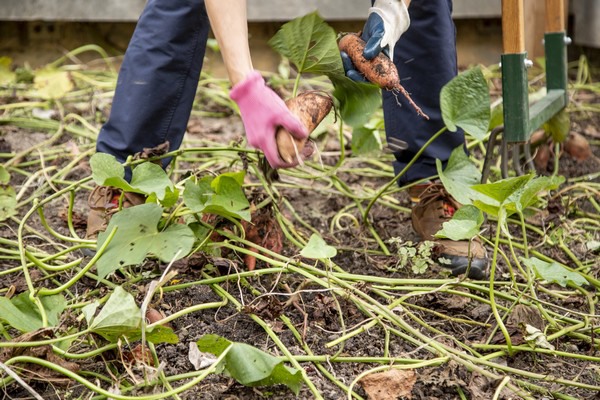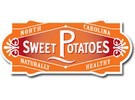The North Carolina sweet potato season is coming to an end, with the last of the product currently being harvested. Kelly McIver, executive director of the North Carolina Sweet Potato Commission says of the season: “We had a few weather challenges this season. The planting starts early in the spring, and then the harvest begins in late August or early September. We had a lot of back-and-forth weather with both dryness and rain. While this kind of weather can be difficult, it isn’t unusual for the area so the growers are used to it and know how to deal with this. They are able to keep their crops healthy throughout it, and it’s almost like a little love story when the farmers go out to their fields every day to check to see if the potatoes are ready for harvesting.”

The NC Sweet Potato Commission works with people all throughout the sweet potato supply chain, from growers to packers to shippers to processors and other affiliated members. The sweet potato is North Carolina’s state vegetable, and for good reason. McIver says: “North Carolina has been the top sweet potato producing state since 1971 and the state produces nearly 60% of the U.S. supply and an even larger percent of the international supply. We support the people we work with through research, education, and promotion. We also work together with public relations companies to help keep the consumers engaged with the product and ensure it is a staple on people’s shelves.
New ways to sell and prepare sweet potatoes
“The North Carolina sweet potatoes are used both domestically and for export, both fresh and processed. About 60% of the product is distributed domestically and the other 40% is exported worldwide. We’ve been seeing a lot of new opportunities for the packaging of the product – such as spiralized or cubed ready-cut portions. There have also been more ‘petites’ or smaller packaging on the market. Overall, we are seeing just a larger variety of ways the product is being sold and being eaten. We feel like we are going to see many more opportunities for the sweet potato industry in the future.”
The new and innovative ways of eating the sweet potato also extends to more traditional occasions. McIver says: “Of course we always see a spike in demand around Thanksgiving, but the interesting thing is that the consumers are preparing them in new ways. We aren’t seeing just the sweet potato casserole anymore, but there are also many savory dishes being prepared with the sweet potato. It’s really great to see how consumers are preparing and presenting the sweet potatoes with their holiday meals.”
Positive outlook for the year
Last year’s sweet potato season was really tough due to the hurricane that passed through the area, which resulted in significantly lower-than-usual yields. This year, things are looking much better. “This season has been running pretty smoothly – some growers started on time, some a bit late, but that is usual. Overall, this year’s crop makes us hopeful that we’ll have plenty to refill the stores and cover us throughout the year and be able to support our customers with the North Carolina product,” McIver says.
“Here in North Carolina we use a unique storing and curing process which keeps the sweet potatoes fresh for up to 14 months, allowing us to be able to distribute them year-round. The introduction of this storage technology, developed by North Carolina State University professor and agricultural engineer Mike Boyette in the 1980s, North Caroline has been able to increase its market share as grocery chains and restaurants can buy our state’s crop year-round,” McIver concludes.
For more information: 
Rachel Woods
Email: rwoods@fwv-us.com
www.ncsweetpotatoes.com
